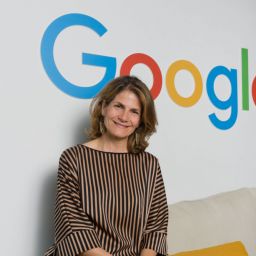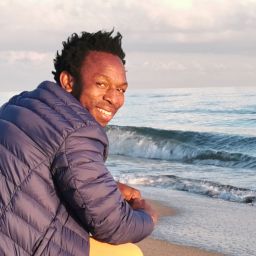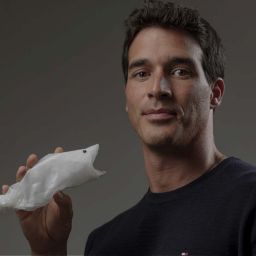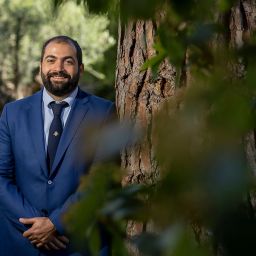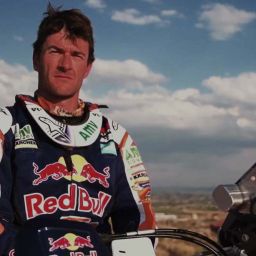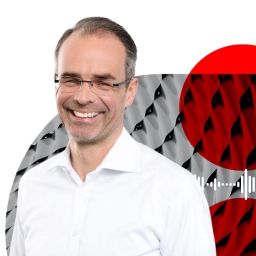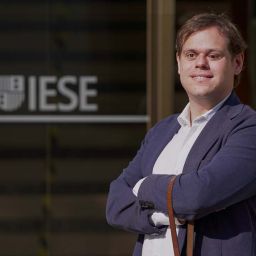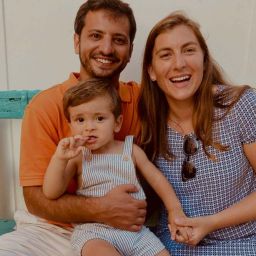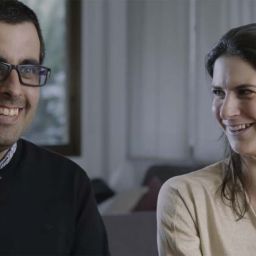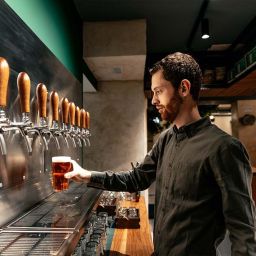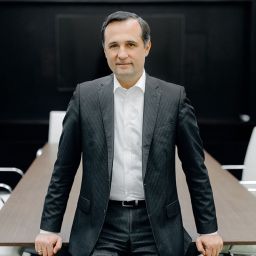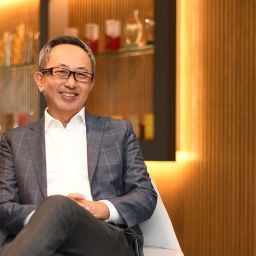The pandemic has forced many people to take stock of their lives. But for Gopala Krishnan – or G.K. as everybody calls him – it was a different personal health scare many years ago that made him stop and change direction.
Running a mobile media company in China and India, he suddenly decided in 2008 to “quit the corporate club. I started getting conscious about my health, exercising, and checking food labels.”
What he saw on those labels startled him and led him down a very different path. Today, he is a social entrepreneur with bold ambitions: to transform the health of millions of women and children in India.
It seems a Herculean task in a country where two-thirds of the population live on less than $2 a day and where COVID-19 has pushed an estimated 75 million more people into poverty, reversing the progress of recent years. Yet G.K. believes he may have cracked the code on a model that works for delivering large-scale impact.
In knead of change
It all started with a humble loaf of bread. In researching what all the chemicals were on the label, G.K. discovered one was potassium bromate, a bleaching agent that had been banned in the U.K. and E.U. for years. “I saw a food toxicity problem for millions of people every day. I wasn’t an activist, I had no power to change the law, but I definitely understand corporations and I knew how to get them to change.”
Armed with his research, G.K. met with the leading local manufacturer. “They were all very nice, they said they would do something, and then nothing happened. They assumed I would just go away, but I didn’t. I kept following up. Every week for six months. Then I escalated it to the U.K. headquarters of the food manufacturer.”
Eventually, the multinational banned the ingredient from its Indian loaves. That was G.K.’s first light-bulb moment: “I realized that if you could leverage companies or organizations that had very large distribution networks for a social intervention, then you could actually create impact at significant scale, without having a lot of resources yourself.”
The business model takes shape
That lesson was in the back of his mind when he had a conversation with his health worker cousin, Janani, who mentioned how low vaccination rates were the cause of many sick and disabled children in India. The vaccines were free and vaccine awareness was high, yet – in a question many are asking today – why did so many people skip their jabs?
It came down to people simply forgetting their appointments. Once again, G.K. had research, this time showing that vaccination reminders significantly improved compliance.
Given his business background in mobile communications, using tech to send a vaccination reminder via SMS or email wasn’t the problem. What he needed was a large distribution network. “After all, why develop a solution for just one or two hospitals when you could create a national program?”
With the help of a leading neonatologist, Dr. R. Pejaver, they got the Indian Academy of Pediatrics on board, which lent the effort nonpartisan credibility – another important piece of the business model.
Finally, he secured Vodafone as a corporate sponsor, appealing to their “mobile for good” CSR program. Creating win-win financial sustainability like this completed the picture: “If Vodafone writes a check, I want them to realize they’re getting much more value back in terms of reputation and stakeholder engagement.”
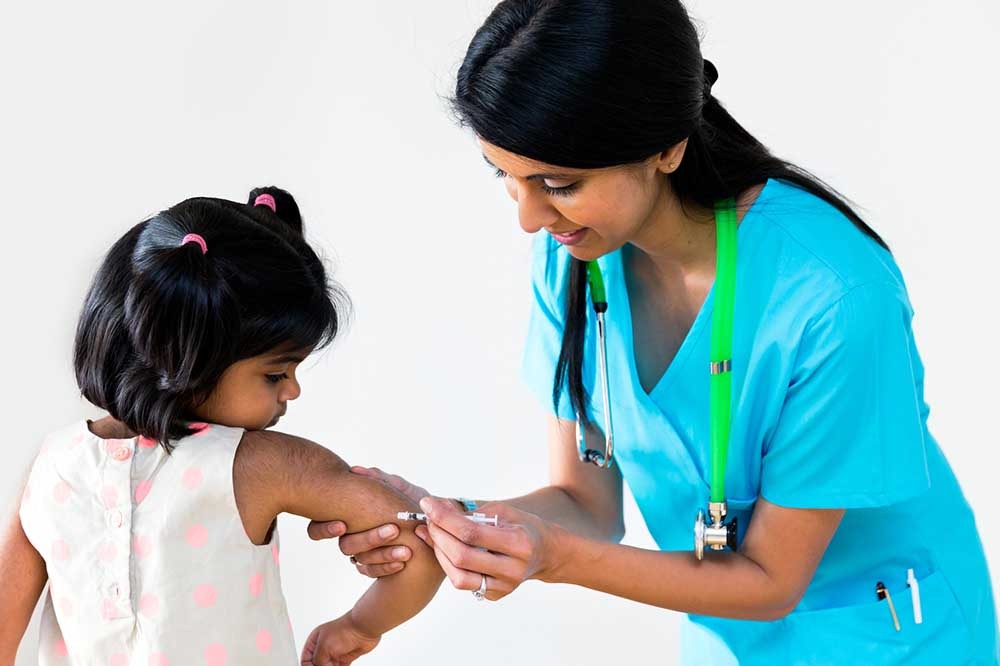
For every problem, a solution
The learnings from that program, Immunizeindia, informed his next venture, Poshan, providing a free information service in all Indian languages for 8 million women to prevent stunting in children. Again, G.K. leveraged large-scale networks – from government ministries and the Indian Academy of Pediatrics to Vodafone and DSM – to ensure that the service would be comprehensive, credible, widely available and of mutual benefit to all stakeholders.
The problems are endless – and for G.K., so are the solutions. “Once I got introduced to the scale and scope of the problem of the poor health of women and children, I decided to spend the rest of my life working in this area.”
So, addressing the problem of patient education led him directly to continuous education for doctors. From there, it was “how to improve the quality of care and provide diagnostic support, guided by specialists, at the point-of-care in outpatient clinics. Lifestyle disease management. Children’s diets. Meal planning. Such services should be available in a country where 90% of the children have nutritional deficiencies.”
Indeed, an estimated 4 out of 10 Indian children under the age of 5 have stunted growth owing to malnutrition, and this puts them at a disadvantage for life. If the human, social and economic problems that hobble a nation can be traced back to childhood, G.K. decided to focus his entrepreneurial energies on attacking those problems at their source, using innovative business models.
Trust is key
Poshan was followed by a succession of other tech-enabled platforms: Narikaa, a women’s educational initiative of the Federation of Obstetric & Gynecological Societies of India (FOGSI) done in partnership with WayBeyond Media; Inditech, a platform for medical academies, universities and institutes to disseminate education for doctors and med students; and a new “smart clinic” initiative, currently underway, involving India’s leading e-governance service company and the Indian Academy of Pediatrics.
All these projects are more robust than the typical public-private partnership model, says G.K., in that they offer techno-commercial solutions with scalable revenue models by design. “I do not believe in doing these programs funded by charity,” he says. “They have to be financially sustainable.”
Even though he invites in business partners, he sets clear boundaries, because he knows any whiff of partisanship will ruin the brand, which remains credible only if doctors and patients trust the source. For example, a pharmaceutical company can donate to the project, but they can have no say over the information being delivered. “It’s like a newspaper: an advertisement has to be kept separate from the editorial.”
A transformative business model
G.K. believes the model is especially well-suited to the developing world: “When you approach partners, you need to bring something special that they lack. In the case of the Indian Academy of Pediatrics, we could bring a techno-commercial model, the ability to execute it and initially the investors to fund it. In a developed world context, you go to a leading institution and say, ‘I’m bringing technology,’ they say, ‘So what? I can buy this technology. Why do I need you?’ But here, we are bringing fundamental capabilities which simply are not there, and we’re extending their own capacity, helping them to deliver education through their own trusted channels. That is transformative.”
Throughout it all, G.K. is keen not to put himself at the center.
“People always want to know the secret of being a social entrepreneur and I always say the same thing: It’s not about you, it’s about your ability to leverage others.”
“I am leveraging corporations and individual leaders, their personal and professional networks, and their capabilities, to create change. I don’t have the capabilities myself, but others do. And my job is to leverage that and scale it to address some social problem of which there are plenty out there to solve.”
He credits the Indian Academy of Pediatrics’ Dr. Bakul Parekh, Ashwin Mittal (philanthropist and CEO of Course5i), Meenakshi Menon (who sold her Spatial Access media measurement business to Deloitte) and many others who have made critical contributions to “figuring out the secret sauce” together. G.K. has also worked with IESE Prof. Christoph Zott, an expert in business model innovation.
“Always be sensitive to that, and don’t make it about you,” he says. “Entrepreneurship is about everyone involved in this shared project of transformation. Because that is what we are really trying to do: Transform the world.”
IESE launched an Executive Education program in Business Model Innovation, taught by Prof. Zott.



